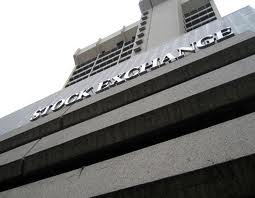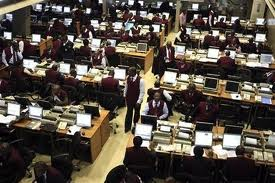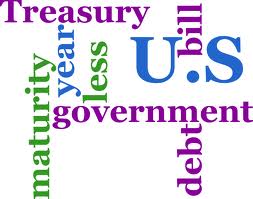
(Over 20 years investing experience in Nigeria’s financial markets)
The movement of share prices on the Nigerian Stock Exchange is determined by many factors. I will enumerate some of the factors responsible for downward and upward movements of share prices in this article. It should be noted that a stock cannot gain nor lose more than 10% in a day; it used to be 5% before it was reviewed upward by the management of the Nigerian stock Exchange.
1. DEMAND AND SUPPLY: The laws of demand and supply affect the prices and availability of stocks on the floor of the stock exchange. If the demand for a stock is higher than supply, the stock is on bid and the price of the stock may continue to go up for days. Likewise if the supply of a stock is higher than the demand, the stock is on offer and the price of the stock will fall. A number of factors are responsible for the demand and supply of a stock.
2. FINANCIAL PERFORMANCE: The financial performance of companies quoted on the stock exchange is one of the factors responsible for movement of share prices. Quoted companies are expected to submit quarterly financial result to the stock exchange and are also expected to publish the result in the financial press.If a company declares an impressive result, investors will take position in such stocks in order to partake in the bounty returns. The reverse is the case if a company has an unimpressive performance; investors will sump the stock making the price to fall.
3. NTEREST RATE: When interest rate increases, investors will move their money from the capital market to the money market. During the increase in interest rates, stock prices move downward due to movement of money to the money market.
4. RETURN ON INVESTMENT: Companies that have consistently produced a good return on investment will always have large patronage on their stocks. Foreign investors, pension fund managers, mutual fund managers, insurance companies and other institutional investors will want to have stocks with consistent good return on investment in their portfolio.
5. POLITICAL STABILITY: This will make both local and foreign investors have confidence in the economy and invest their money. Instability will create fears in the mind of investors. The stock market suffered during the political crisis of 1993, but with the return to civil rule the 1999 the market capitalisation has moved from N600 billion to N13 trillion.
6. GOVERNMENT POLICY: Government policy controls the economy. The current agricultural policy of the Federal Government of Nigeria has increased the net-worth of some investors by millions or billions of Naira through their investments in some agricultural companies like Presco and Okomu. The cement policy of Obasanjo regime saw the price of a company like WAPCO moved from N8.00 to N20.00, the stock currently sells for N115. Monetary policy of the Central Bank of Nigeria may have positive or negative impact on the prices of banking stocks.
7. NEW MANAGEMENT: The coming of new core investors and management will have positive effects on the stock price of an underperforming company. When the new management of International Brewery Ilesha took over the company about 8 years ago, the stock price was N0.80k but the stock now sells for N30.00.
8. GLOBAL ECONOMY: The world is now a global village, thereby making events in Asia, Europe or America to affect our economy and the stock market. Close to 60% of the transactions on the Nigerian Stock Exchange are controlled by foreign investors, the foreign investors are also increasing their holdings in most of our blue-chip companies and industries thereby putting our capital market and economy in a precarious situation whenever something negative happens to the economy of the foreign investors’ country even when our economy seems to be doing well.
Established in March 2013, JarusHub is a Nigerian information hub with focus on career and management. It is rated Nigeria's most authoritative destination for online career resources. It parades an array of Nigerian professionals who share their career experiences with a view to bridging career information gap and mentoring a generation to success. Whether you're a student, a recent graduate or an established professional, or even an executive, you will always find something to learn on JarusHub. All enquiries to jarushub@gmail.com or 0808 540 4500. Facebook: www.facebook.com/jarushub; Twitter: @jarushub or @mcjarus.
SHARE YOUR STORY WITH JARUSHUB
May 4, 2016









Your points are clear and well-taken, but until you provide a research to back point 3, I will not completely agree with it. An analysis of the relationship between NSE returns and interest/money market rates in Nigeria should be very helpful in this regard. Remember, the CBN maintained a tight monetary policy throughout 2013. This pushed up money market rates, yet NSE gave one of the highest returns among Emerging Markets stock exchanges.
Nonetheless, your point 3 is true theoretically…But, is it true empirically?
Thanks for your comment you can read up HOW INTEREST RATES AFFECT STOCK MARKET on Investopedia, or you can goggle up the topic for empirical evidences.
All things been equal an increase in interest rate will have a negative effect on prices of stocks, but some value investors will take this as an opportunity to buy more shares at reduced prices. At least 70% of the time, all things ought to be equal.
Nigerian banking stocks were selling at a ridiculously low prices between 2012 and 2013, imagine UBA at N2.50, Acess bank at N3.00, FBN at N10 etc. Even at these prices the banks were also churning out good results after they had cleared there books.
Foreign fund managers invest their money wherever they see value, they saw opportunities and value in our stock-market, based on the prices some of the stocks were selling for. So with an increase in interest rates they were ready to invest billion of dollars in our stock-market. This led to a high demand for some of the stocks listed on the exchange, thereby leading to to bumpy harvest stock prices increase-wise for investors.
Hello,
Thank you for your response.
I believe what is obtainable in one environment may not necessarily be obtainable in another environment. It is possible for the writer of that article on investopedia to base his conclusions on empirical research conducted on other markets which do not necessarily proxy the behaviour of Nigeria’s capital or money market. As such, the conclusions reached by investopedia may not be universally true. There could be exceptions. This explains why I requested an empirical evidence from Nigeria to see whether there is a divergence from Point 3. To every rule, there could be exceptions.
If I understood well, the idea you were trying to pass across in Point 3 is that a negative relationship exists between interest rates and stock market performance. Whilst this makes sense analytically and theoretically, empirical research can sometimes suggest otherwise and I will give examples of such divergence below.
In the Philippines, Singapore and Thailand, a negative long term linkage between stock price and interest rate was found to exist. I agree that this completely supports Point 3 of your article and is very much in line with your explanation there. However, this is not always the case in all markets. Empirical evidence in the paper ( Maysami et al., (2004)) suggested the existence of a positive relation between stock market performance and interest rate in Indonesia and Malaysia. Indeed, the market can sometimes be very irrational and inexplicable. This is why an empirical research is important as it will help establish the case for a given country.
It is important that we also distinguish between short-term effects and long-term effects and the significance of these effects. That two variables are positively or negatively related does not necessarily imply that the relationship is significant.
Finally, my Google search for related literature led me to these papers http://www.iiste.org/Journals/index.php/JEDS/article/viewFile/133/13 and http://www.cenbank.org/OUT/2012/PUBLICATIONS/REPORTS/STD/STOCK%20MARKET%20REACTION%20TO%20SELECTED%20MACROECONOMIC%20VARIABLES.PDF.
The papers establish the empirical relationship between stock market performance and interest rates in Nigeria. From conclusions reached in both papers, we all have to AGREE with Emmanuel Ewumi that Point 3 holds in Nigeria, i.e. interest rates and stock market performance exhibit a negative relationship. However, the significance of the negative relationship is inconclusive, in my view. I say this because the first paper says the negative relationship is significant, with a level of significance of 10%. But the second paper says the negative relationship exists, but it is not significant.
Excerpts from the first paper
….lending rate of commercial Banks have significant negative relationship with the total stock transaction in the Nigerian stock exchange market…..
Excerpts from the second paper
……..Though the results for Treasury bill and inflation rates were not significant, the results suggests that they were negatively related to the stock market in the short run thus,…..
Note, in the first paper, lending rates were used to proxy interest rate; second paper, on the other hand, uses T-bill rates to proxy interest rate.
The aim of this contrarian write-up is to help other people take contrarian opinions when they have a strong conviction and opposing views on issues.
Regards
Admit
Thanks Admitwithschola for sharing this with us. Your comments are quite rich and analytical, hope to hear from you every week.
Thanks and God bless.
Another factor is market sentiment, I advice we read any good book on behavioural finance.
Yes, behavioural finance is really very helpful, albeit still a relatively new field around the world, with relatively little research. Particularly interesting in behavioural finance is the concept of market irrationality, loss aversion and regret aversion.
Those interested in behavioural finance, as proposed by Emmanuel, can start here http://www.behaviouralfinance.net/behavioural-finance.pdf
Dig deep for knowledge there are tonnes of materials on behavioural finance.Although it is a relatively new body of knowledge in this part of the globe.
Shrewd investors make money from the irrationality of the market.
I AGREE WITH BOTH PARTY WITH THEIR VIEW BUT THE BASIC THING IS THAT BOTH PARTY HAVE REALLY DEALS WITH EITHER POSITIVE OR NEGATIVE RELATIONSHIP BETWEEN INTEREST RATE AND STOCK PRICE BUT MY QUESTION IS HAVE INTEREST RATE CONTRIBUTED IN A POSITIVE WAY AS A FACTOR TO ANY DISCUSSION IN NIGERIA ECONOMY? NO!THAT IS WHY AS FAR AS NIGERIA IS CONCERN INTEREST RATE IS ALWAYS A NEGATIVE FACTOR.YOU CAN PROOF ME WRONG.